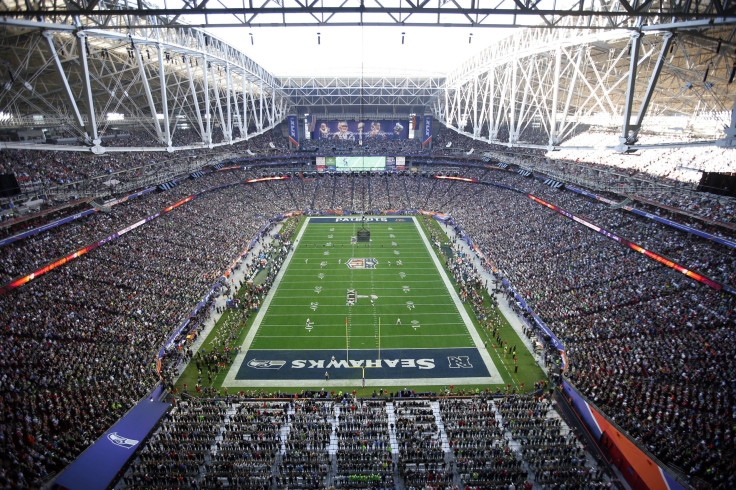Super Bowl 2015: Protesters Use National Spotlight To Fight Hate, Domestic Violence

Several groups in Arizona capitalized on the spotlight around Super Bowl XLIX Sunday by staging protests around the venue. Before kickoff, at least one group pushed for a change in Washington Redskins’ team name and mascot, and protested violence against women. Another group affiliated with the nationwide “Black Lives Matter” protest movement that was spawned by the deaths of unarmed black men at the hands of police also planned to demonstrate around the game.
A coalition of American Indian tribes marched through downtown Phoenix Sunday afternoon to draw attention to the effects of stereotypes and violence against tribal women, who reportedly face domestic violence and sexual assault at higher rates than those in other communities. Several Twitter posts from users in Phoenix showed more than a dozen people participating in a planned march and rally. That action followed an effort by other American Indian advocacy groups, who last week released an online ad that imagines the Redskins’ players and fans rejoicing without the visual reminders of the franchise name and logo.
Agreed. #ChangeTheName pic.twitter.com/YBKUrKtj0M
— ChrisPetersonTCS (@TheCheapSeatsTV) February 1, 2015The NFL was roundly criticized last year for its handling of the Ray Rice domestic violence case, and the Arizona groups, including the Southwest Indigenous Women’s Coalition, used the Super Bowl to bring attention to violence against women in their communities, the website Think Progress reported. A group of “Black Lives Matter” protesters released black balloons during kickoff.
Standing up for our rights during Superbowl! #BlackLivesMatter #SuperBowl #SuperBowlXLIX pic.twitter.com/xo4kJu9ouY
- bLaCkLiVeSmAtTeR (@miaXseidner) February 2, 2015
A press release from the group announced a campaign that incorporates the “Black Lives Matter” theme in demonstrations against police brutality “in America and Arizona,” the Arizona Republic reported. In the release, group organizer the Rev. Jarrett Maupin said: "We are challenging Arizona's moral and social status quo. As long as the status quo allows others to perpetrate the violence of systemic racism on black people, we will not be silent or immobile."
© Copyright IBTimes 2025. All rights reserved.






















